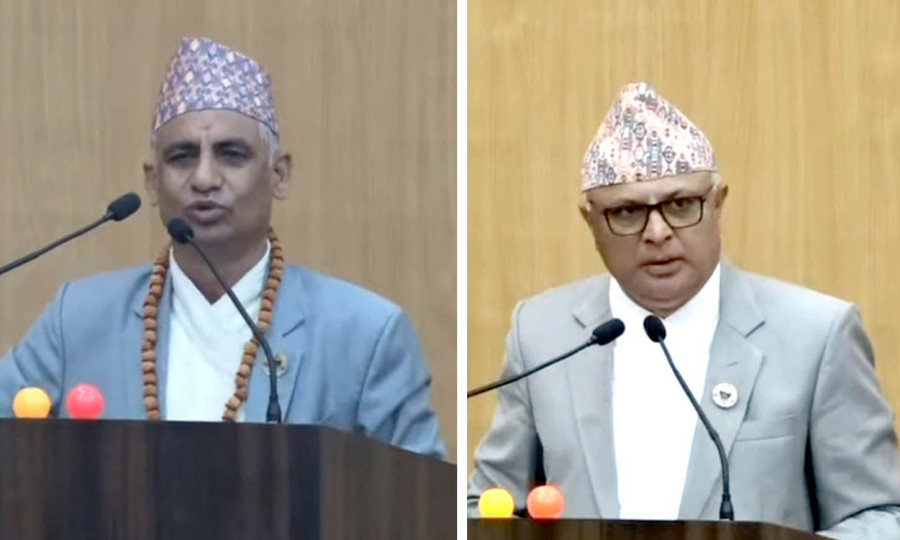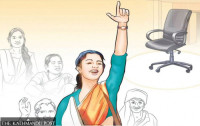National
UML to quit Koshi government over Cabinet expansion
Chief minister’s move to induct ministers from Maoist Centre and Unified Socialist into Cabinet riled UML.
Post Report
The CPN-UML is preparing to quit the Koshi government after Chief Minister Kedar Karki appointed ministers from the CPN (Maoist Centre) and the CPN (Unified Socialist).
UML provincial assembly leader Hikmat Karki said his party decided not to be a part of the Nepali Congress-led coalition.
“We have been neither informed nor consulted [about the induction of new ministers],” said Karki. “We were not in the current alliance of the centre yesterday, we are not today and we will not be tomorrow. We have already decided on this matter.”
Earlier today, Koshi Chief Minister Karki appointed Ganesh Uprety of the CPN (Maoist Centre) and Kamal Prasad Jagebu of the CPN (Unified Socialist) as ministers without portfolio.
UML’s Ram Bahadur Rana is a minister in the incumbent government in the province. Earlier, UML had warned to quit and withdraw their support from the government if parties other than Congress joined the government.
On October 14, Kedar Karki, a provincial assembly member from the dissident faction of the Nepali Congress, became the chief minister of the Koshi Province with the support of the CPN-UML, which is the largest party in the provincial assembly. He took the oath the next day, and inducted two ministers without portfolio— Ram Bahadur Rana Magar of the UML and Shamser Rai from his faction of the Congress.
Opposing the party’s decision to support Indra Bahadur Angbo of the CPN (Maoist Centre) in the chief ministerial race, eight provincial assembly members from the Congress in the country’s eastern province, had decided to form a government led by Karki, with UML’s support.
While 21 Congress lawmakers supported Angbo as per the decision of the Congress top brass, eight close to dissident Congress leader Shekhar Koirala refused to oblige. Karki became chief minister with support from 39 lawmakers from the UML along with the Congress members in the 93-strong provincial assembly.




 8.83°C Kathmandu
8.83°C Kathmandu













